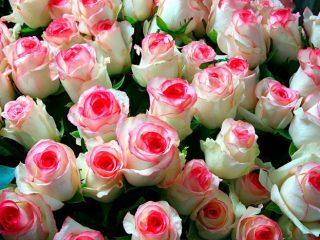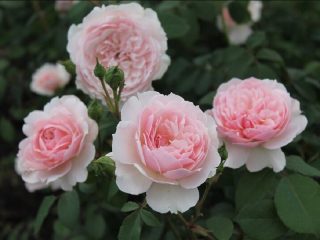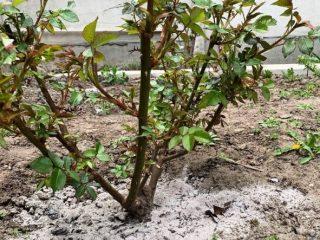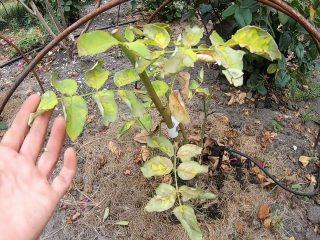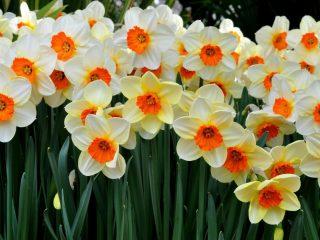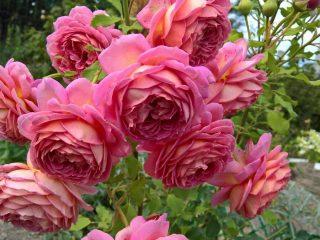Content
Planting gladioli in the spring in the Moscow region implies the use of old material - tubers or tuber buds - for productive reproduction in the Russian climate. Apart from nurseries, almost no one uses seeds, because it is much easier to grow a crop with bulbs.
Climatic features of the region
An important factor to consider when planting is the climate zone. A young gladiolus grows for 2-3 years, after which the plant turns into a full-fledged peduncle.

In spring and summer, tuber buds form in the lower part of the bulb; they are tiny in size (about 15 mm)
Their number varies depending on the variety, the average number is 8-12 pieces. There are varieties with weak growth - they form up to 5 pieces, and there are varieties with strong growth, which form up to 30 tubers.
Before the arrival of spring, gladioli in the Moscow region should be covered. Usually they are dug up and stored in the refrigerator, and with the onset of the warm season they are replanted. The most resistant tubers are chosen; in the spring they need to be separated immediately before planting.
If there are few children, you can seat them all. Small ones are placed in separate containers so that they can then be grown.After three years, the crop will begin to form buds. In the Moscow region, bulbs are dug up in the fall, culling weak specimens.
It is not recommended to prepare for planting third-grade gladioli, especially in the spring in the Moscow region, since the crop will not be able to reach the required size during the allotted growing season.
When to plant gladioli in the Moscow region
The plant has low winter hardiness, and in severe frosts it can easily be damaged. Considering the climate of the Moscow region, gladioli will be sick for a long time, especially if planted in early spring. Young shoots are susceptible to infectious diseases, and this negatively affects the time and completeness of flowering.
It is difficult to say exactly when to plant gladioli in the Moscow region. Due to the unpredictability of the weather, there are simply no such deadlines. Planting should be done in the spring, when the soil warms up to +10 °C and the daytime temperature exceeds +14 °C.

For a conventional date in the Moscow region, you can take the period from the end of April to May
If the desire overpowers, it is allowed to plant a little earlier - in the middle week of April. But the gardener will need to build protection: drive several arcs into the ground and cover them with film every evening. During the day the shelter is removed.
Planting gladioli in the Moscow region in open ground
In the spring, before planting, gladioli must be prepared. Planting all the bulbs is wrong, since some seedlings will never develop.
Bulb selection
The first step is to inspect the material.There should be no stains or signs of rot on the bulbs. They even take into account the smell: if the gladioli smell damp, they may already be affected. Shiny and wrinkled specimens are discarded immediately.
Other signs of low-quality raw materials:
- concave bottom;
- underdevelopment;
- dimensions are too large;
- presence of insects;
- flat base.
The optimal size for corms is 3 cm, of which the diameter of the bottom is only 5 mm. Their roots should be light (planting material with black or brown shoots in the Moscow region is doomed to failure). There may be 1-2 sprouts on a gladiolus bulb; if there are more, the raw material is discarded. The same applies to dry and softened samples.
When to germinate gladioli in the spring in the Moscow region
After selecting viable bulbs, you can begin to germinate them. The process differs from germinating seeds of other garden crops. Gladioli are turned with their sprouts up and placed in a shallow perforated box.

In spring, the sun's rays should not fall on the material, however, you should not store the bulbs in the shade either.
Gladioli should be planted for germination in the Moscow region when the height of the sprout reaches 10 mm and the length of the root shoot exceeds 2.5 mm. Of course, very long shoots can also be planted in the spring. But if they never formed, there is no point in planting them in open ground.
After germination, gladioli need to be soaked in fungicide for 30 minutes. You can use the popular Fitosporin, which is available in almost all gardening stores. After processing, the material is dried and then placed in a growth stimulator.
As for the timing, in the Moscow region, when planting in the spring, gladioli germinate in 3-4 weeks. Until this time, inspection and sampling are carried out.
Site selection
They begin to prepare the bed before winter arrives. The soil can be any - gladioli grow well in loam and sandy loam. Planting is carried out according to a single-line scheme. The optimal width of the ridge will be 40 cm. The length is limited only by the author’s idea and the site itself.
Soil preparation
In the fall, they dig up the upper layers of the earth, and at the same time remove garbage and other vegetation. Then fertilizers are applied - per 1 sq. m, a little mineral supplements and 4.5 kg of compost are enough.
The garden is left until spring, and when the snow melts and the soil warms up, it is dug up again. Add any organic matter (1 tbsp) to each planting hole. The drug Berry is suitable specifically for gladioli.

In the Moscow region and other regions, fresh manure cannot be applied, as it burns the roots and contributes to the formation of infections.
When re-growing gladioli in open ground in the Moscow region, it is better to choose another site that has had time to “rest” from the plants. The crop is returned to its original place only after 2-3 years. Experts recommend placing gladioli on old beds of onions and garlic.
Landing technology
In the Moscow region, work begins towards the end of spring - around mid-May. When planting abundantly, maintain a distance of 0.5 m between the rows. The distance between the bulbs depends on the variety of gladiolus. Early-flowering crops do not grow so luxuriantly, so you can leave 15 cm between them. Mid- and late-flowering crops are separated from each other by 30 cm.
A hole is dug by deepening the shovel to 15 cm. Here it is important to look at the dimensions of the corm - it should not be completely covered with earth.The sprouts are left on the surface.
Further care
Gladioli are picky about soil moisture and like to be watered regularly. Thirst intensifies during the opening of the fifth leaf - then the plant enters the budding phase. Liquid deficiency leads to a reduction in the number of flowers, a decrease in the diameter and rate of branching of the roots.
It is necessary to moisturize abundantly, while looking at the weather forecast. In spring, per 1 sq. m may need up to 18 liters of water. Watering is also needed after planting.

It is equally important to mulch the soil, because it helps retain some moisture.
If the soil in the Moscow region is depleted, gladioli are fed throughout the growing season:
- urea solution - to the appearance of three leaves;
- nitrophoska - to the formation of four true leaves;
- organics - at the end of spring, when the budding stage begins;
- potassium sulfate - when several flowers open.
Thanks to nutritional supplements, gladioli bloom earlier and more luxuriantly. The abundance of nutrients increases the density of shoots, which has a great effect on decorativeness.
When gladioli begin to fade, the flowers should be trimmed before they fall. The timing of when to do this depends on the variety. In the Moscow region, by the end of September, the material is dug up and put in a refrigerator for temporary storage for the winter.
Conclusion
Planting gladioli in the spring in the Moscow region includes several stages: selection of corms, site preparation, germination and the planting process itself. The latter is recommended to be done towards the end of spring, when the temperature of the upper layers of the soil exceeds +10 °C.


